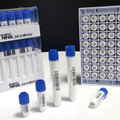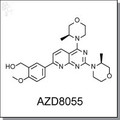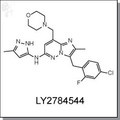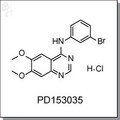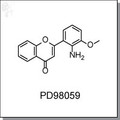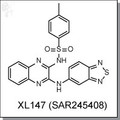 Loading... Please wait...
Loading... Please wait...- Home
- Disease Area
- Oncology
- Lonidamine | Glycolysis inhibitor
- Home
- Cellular Mechanism
- Metabolism
- Synthesis/Degradation
- Lonidamine | Glycolysis inhibitor
Product Description
Lonidamine is an orally-available, indazole-based inhibitor of glycolysis by the inactivation of hexokinase. Lonidamine is believed to increase apoptosis and in in vitro models has displayed markers of mitochondrial membrane depolarization, cytochrome C release, phosphatidylserine externalization, and DNA fragmentation. In support of apotosis induction, caspase activity was found to be enhanced by Lonidamine in LNCaP cells. (1)
In separate studies, lonidamine was found to act of mitochondra to induce apoptosis by dissipating the inner transmembrane potential and the release of key apoptotic factors. (2)
Technical information:
| Chemical Formula: | C15H10Cl2N2O2 | |
| CAS #: | 50264-69-2 | |
| Molecular Weight: | 321.16 | |
| Purity: | > 98% | |
| Appearance: | white | |
| Chemical Name: | 1-(2,4-dichlorobenzyl)-1H-indazole-3-carboxylic acid | |
| Solubility: | Up to 100 mM in DMSO | |
| Synonyms: | 0 |
Shipping Condition: The product is shipped in a glass vial at ambient temperature.
Storage condition: For longer shelf life, store solid powder at 4oC desiccated, or store DMSO solution at -20oC.
Reference:
| 1. | Brawer et al., Lonidamine: Basic Science and Rationale for Treatment of Prostatic Proliferative Disorders. Rev. Urol. 2005, 7, suppl. 7, S21-S26. Pubmed ID: 16986057 |
| 2. | Ravagnan et al., Lonidamine triggers apoptosis via a direct, Bcl-2-inhibited eff?ect on the mitochondrial permeability transition pore. Oncogene, 1999, 18, 2537-2546. Pubmed ID: 10353597 |
Other Information:
Product Specification (pdf)
MSDS (pdf)
Certificate of Analysis is available upon request.





